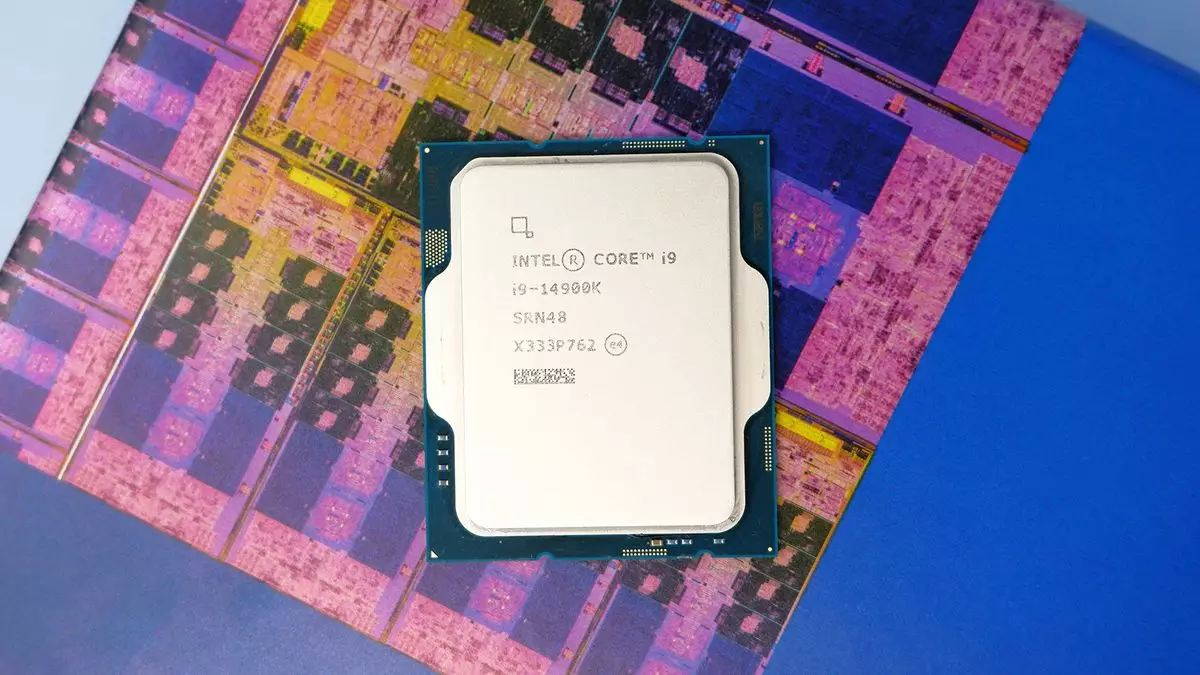In a significant development that could have far-reaching implications for Intel Corporation, a class action lawsuit has been initiated against the tech giant in federal court in California. The lawsuit stems from allegations that Intel knowingly sold microprocessors prone to instability and crashing, with potential consequences that could tarnish the company’s reputation and impact its financial standing. At the center of this legal battle is Mark Vanvalkenburgh, whose dissatisfaction with his Intel Core i7-13700K processor purchased from Best Buy has led him to uncover these alleged malpractices.
Vanvalkenburgh’s grievance revolves around his experience with the 13th Generation Intel CPUs, specifically the i7-13700K model, which he claims suffered from severe instability issues after purchase. The lawsuit documents his attempts to rectify the situation, highlighting how he applied the recommended Intel microcode patch, only to be met with continued functionality problems. This incident lends credence to his claims that the processor was flawed from the outset.
A crucial point raised in the lawsuit is the assertion that Intel was well aware of the issues surrounding its processors prior to the surge of complaints. The document states, “By late 2022 or early 2023, Intel knew of the defect,” suggesting that the company had adequate opportunities to take precautionary measures but failed to act. The legal implications of such statements are profound; if it can be demonstrated that Intel continued to sell defective products despite awareness of their faulty nature, the repercussions could be severe, not only legally but also in terms of consumer trust.
The situation worsens for Intel as the firm has admitted that once a critical component of a CPU is compromised due to voltage spikes, software patches can no longer alleviate the underlying hardware issues. This revelation raises questions about the efficacy of Intel’s responses to customer complaints, especially when those patches were marketed as fixes for the perceived flaws. Despite the company’s claims of rectification through multiple patches, the mere acknowledgment of hardware damage—beyond the software’s reach—creates doubt among consumers regarding the reliability of Intel products going forward.
Intel’s proactive steps, including extending warranties on Raptor Lake chips by two years and allowing more lenient return and exchange processes, seem like attempts to mitigate consumer backlash. However, these measures also reveal a reactive mindset, indicating perhaps that the company is on the defensive rather than being proactive in quality assurance.
The implications of this lawsuit extend well beyond the courtroom; they could have damaging effects on Intel’s market image and stock performance. Recent corporate shifts have already seen Intel drop out of the Dow Jones index, which serves as a barometer of its declining influence in the tech arena. The lawsuit underscores a troubling trend of quality control issues within the industry, as competitors observe and prepare to distance themselves from a besieged Intel.
Given the history of high-profile lawsuits in the tech industry, the trajectory of this class-action case will be closely watched. Potential outcomes may range from punitive damages to a larger settlement that could involve extensive consumer compensation. Observers and analysts speculate whether Intel will opt for a prolonged legal battle or choose a quicker settlement, which could allow the company to preserve some semblance of its public image and consumer confidence.
As the lawsuit unfolds, Intel will face the challenge of not only defending itself against these serious accusations but also attempting to reassure consumers about the reliability of its products. If proven guilty of knowingly selling defective goods, the ramifications for the company could be extensive, spanning financial losses and a diminishing reputation among consumers who have placed their trust in Intel’s brand for decades.
The tech industry, known for its rapid innovation, is also characterized by fierce competition. Thus, Intel must navigate this turbulent waters carefully to restore its credibility and secure its footing in a marketplace that remains skeptical of the very products that form the backbone of modern computing.


Leave a Reply